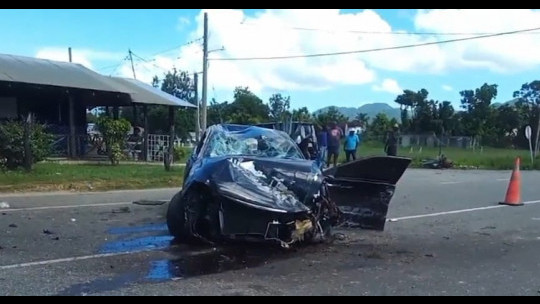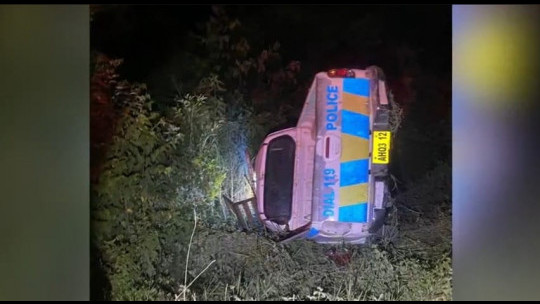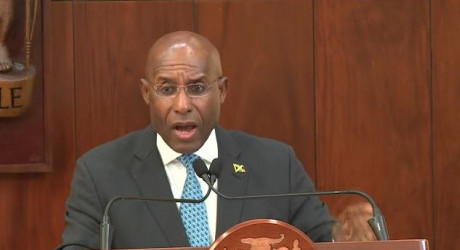.png)
00:00
00:00
00:00
Dr. Lucien Jones, Vice Chairman of the National Road Safety Council and Assistant Commissioner of Police Gary McKenzie, head of PSTEB
By Kimone Witter
Concerns have again been raised about the wearing of seatbelts and the use of child restraints following road crash deaths on the weekend.
In Westmoreland, a 22-year-old man and his three-month-old son died on the Waterworks main road. The child was ejected from the vehicle.
In Clarendon, two police officers died while pursuing suspects along the York Town main road.
Both incidents happened on Sunday.
Vice Chairman of the National Road Safety Council, Dr. Lucien Jones, has lamented that too many drivers and passengers are refusing to wear seatbelts, which is a requirement under the law.
It is also a legal requirement for child restraints to transport children under 12 in private vehicles. Amendments were made to the Road Traffic Law to facilitate public passenger vehicles.
Dr. Jones maintained that protective devices can save lives:
"We have to make sure that every aspect of the system's approach is exploited fully. And therefore, as a country, as enforcing officers, we have to make sure that people are properly buckled up in cars, both front and back, and that motorcyclists wear a helmet," he advised.
He noted that the council is still awaiting the funds requested for a sustained public education campaign on road safety.
Police and seatbelts
In the meantime, Dr. Jones said the wearing of seatbelts by the police while on duty should be addressed by Jamaica Constabulary Force.
"This is an issue which has been in the public domain, and that one needs some revisiting. And that is a matter that has to be settled internally by the police. How do you protect our lawmen and women when they are chasing down suspected criminals?"
But, Assistant Commissioner of Police Gary McKenzie, who heads the JCF's Public Safety and Traffic Enforcement Branch, told Radio Jamaica News that while the drivers of service vehicles are required to wear seatbelts, there are exemptions for passengers.
"The Road Traffic Act is clear with respect to the use of seatbelts by citizens and members of the security forces. The road traffic law indicates that the driver should be wearing his or her seatbelt and the persons who are riding in the vehicle need not be. In situations where the police have to act...the police will have to do what is required to ensure that they are able to manoeuvre themselves depending on the situation," he pointed out.







.jpg)



 All feeds
All feeds







